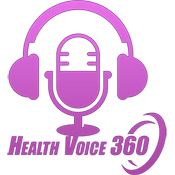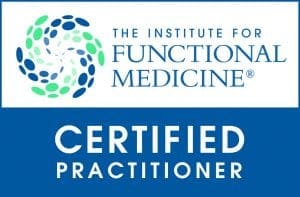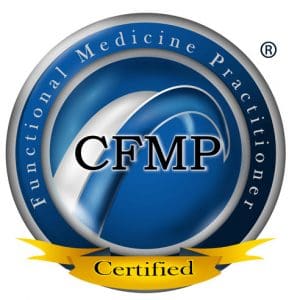Exercise is a challenge for our body’s homeostasis. As such, athletic performance and training require an elevated level of cellular responsiveness and adaptation. Considering this, micronutrients are essential regulators of energy production, repair, and muscle upkeep. Nutritional supplementation in athletes may potentiate tissue repair, support the immune system, and modulate oxidative stress and inflammation. These benefits mentioned above can support athletic performance if applied correctly while considering cellular and genetic responses to exercise.
Genetic expression and recovery
IL6 and IL6R
One crucial part of an exercise and athletic performance is recovery. The genetic expression
Exercise is a challenge for our body’s homeostasis. As such, athletic performance and training require an elevated level of cellular responsiveness and adaptation. Considering this, micronutrients are essential regulators of energy production, repair, and muscle upkeep. Nutritional supplementation in athletes may potentiate tissue repair, support the immune system, and modulate oxidative stress and inflammation. These benefits mentioned above can support athletic performance if applied correctly while considering cellular and genetic responses to exercise.
Table of Contents
Genetic expression and recovery
IL6 and IL6R
One crucial part of an exercise and athletic performance is recovery. The genetic expression of specific SNPs and their association with exercise recovery has been studied elsewhere. Gene codes for pro-inflammatory cytokines and their receptor have a tight association with an exercise-induced mechanical load. Also, they are both crucial markers for inflammation and elevated CRP levels. In the specific case of IL6, the C allele has a stronger association with elevated CRP. On the other hand, a C allele in the IL6R gene would result in muscular fatigue and prolonged recovery after exercise.
CRP
 C- reactive protein is one of the most common inflammatory markers; however, it is also a key player in activating the innate immune system. CRP is the gene encoding for this protein. When a patient has the G allele, it may be linked to higher CRP levels and inflammation. In the athletic context, this allele reflects in the requisition of longer recovery times.Â
TNFA
An athlete with an A allele in this encoding gene can have an acute inflammatory reaction after an intense training session. TNFA is a potent pro-inflammatory cytokine with a tight correlation with elevated CRP levels after exercise.Â
Oxidative stress
Consistent training is linked to inducing oxidative stress, tis is due to a temporary redox balance towards a more oxidized state. Continuous skeletal muscle cell activation requires increased oxygen consumption, as well as elevated levels of reactive oxygen species (ROS) and reactive nitrogen species (RNS). This reaction takes a toll on the antioxidant defenses, resulting in oxidative damage of proteins and DNA. Nevertheless, our body can balance this reaction by upregulating the antioxidant enzymatic systems, including superoxide dismutase (SOD) and catalase (CAT).
SOD2
The duration, mode, and intensity of exercise can vary greatly and affect athletes differently. Nutritional status, age, gender, genetics, and fitness levels interact to determine an individual’s athletic performance and endurance. SOD2 is the encoding gene for the SOD antioxidant enzyme. In the athletic complex, SOD is crucial to minimize muscular fatigue and modulates mitochondrial oxidative stress. The literature shows that an individual with a C allele is prone to have higher levels of oxidative stress after intense exercise.
eNOS
This gene encodes Nitric Oxide Synthase (NOS), an enzyme family catalyzing Nitric Oxide (NO) production. As a cellular signaling molecule, NO modulates vascular tone, insulin secretion, and peristalsis. The critical role of NO in athletic performance is its regulatory properties on blood vessel constriction and resistance. Genetic research shows that those athletes with a T allele have an increased concentration of free radicals and oxidative stress.
dnaSport
Exploding your potential and identifying weaknesses is the main purpose of DNA testing. Indeed, the effectiveness of training and sporting performance is affected by key genetic areas. The DNA profile technology helps to improve the training strategy, nutritional supplementation, and recovery techniques that will support the athletic performance of our patient.
Nutritional Supplementation and Genetic Expression
Micronutrients such as Vitamin C and D and active nutritional compounds like glutathione, thiols, metallothioneins, and lipoid acid work with the enzymatic systems CAT, SOD, and GPX. As the training load increases oxidative stress in a sports context, nutritional supplementation becomes essential for the athlete’s recovery. Knowing the athlete’s genotype, specific training, and baseline oxidative stress markers has become a noticeable topic in the research literature. In addition, this information has brought light to the benefits of proper nutritional supplementation in those athletes with genotypes associated with higher oxidative stress levels.
In 2020, an investigation was performed to observe the changes in the genetic expression of elite handball players before and after an 8-week multivitamin/ mineral supplementation. This study compared 13 elite handball players to 13 sedentary controls. Furthermore, their genetic profile was measured at baseline, after an 8-week supplementation and 8-weeks after the absence of supplementation. The results show that elite players had upregulation of those genes encoding for anti-inflammatory and antioxidant enzymes after an 8-week supplementation. However, at baseline, these players showed increased levels of inflammatory genes such as IL6 and IL6-R.
Another study performed in Waterpolo players measured the oxidative stress effects on athletes before and after acute intense exercise. This study reported the genotypes of 28 players (SOD2 A16V, CAT −844 G>A, and GPx-1 rs1800668 C>T). This study shows a significant decrease in antioxidant enzyme activity, blood antioxidant potential, and a thiol depletion after exercise. Also, those players with CAT −844 GA or GPx1 CT genotype had increased derivates of reactive oxygen metabolites and elevated levels of GPx and CAT posterior to exercise.
The depleted antioxidant enzymes need to recover with the help of vitamins, active nutritional compounds, and minerals. Indeed, nutritional supplementation is essential for an athlete’s recovery. The information provided by DNA testing is a magnificent tool to recognize the different genotypes interfering with the athletic endurance of our patients. Carrying one of these alleles does not mean poor performance. It means that the athlete may need a tailored recovery program, with proper nutritional supplementation, to improve results and promote wellbeing. – Ana Paola RodrÃguez Arciniega, MS
References:
Vecchio, Mercurio et al. “The Oxidative Stress Response in Elite Water Polo Players: Effects of Genetic Background.” BioMed research international vol. 2017 (2017): 7019694. doi:10.1155/2017/7019694
Molina-López, Jorge et al. “Effect of 8-week of dietary micronutrient supplementation on gene expression in elite handball athletes.” PloS one vol. 15,5 e0232237. 1 May. 2020, doi:10.1371/journal.pone.0232237
Additional Online Links & Resources (Available 24/7)
Â
Online Appointments or Consultations: https://bit.ly/Book-Online-Appointment
Â
Online Physical Injury / Accident Intake Form:Â https://bit.ly/Fill-Out-Your-Online-HistoryÂ
Â
Online Functional Medicine Assessment:Â https://bit.ly/functionmed
Â
Disclaimer
Â
The information herein is not intended to replace a one-on-one relationship with a qualified healthcare professional, licensed physician, and not medical advice. We encourage you to make your own health care decisions based on your research and partnership with a qualified health care professional. Our information scope is limited to chiropractic, musculoskeletal, physical medicines, wellness, sensitive health issues, functional medicine articles, topics, and discussions. We provide and present clinical collaboration with specialists from a wide array of disciplines. Each specialist is governed by their professional scope of practice and their jurisdiction of licensure. We use functional health & wellness protocols to treat and support care for the musculoskeletal system’s injuries or disorders.
Our videos, posts, topics, subjects, and insights cover clinical matters, issues, and issues that relate to and support, directly or indirectly, our clinical scope of practice.* Our office has made a reasonable attempt to provide supportive citations and has identified the relevant research study or studies supporting our posts. We provide copies of supporting research studies available to regulatory boards and the public upon request. We understand that we cover matters that require an additional explanation of how it may assist in a particular care plan or treatment protocol; therefore, to further discuss the subject matter above, please feel free to ask Dr. Alex Jimenez or contact us 915-850-0900. Read More.
Dr. Alex Jimenez DC, MSACP, CCST, IFMCP*, CIFM*, CTG*
email: coach@elpasofunctionalmedicine.com
phone: 915-850-0900
Licensed in Texas & New Mexico
General Disclaimer
Professional Scope of Practice *
The information herein on "Athletes: Nutritional Supplementation and its effect on Genetic Expression" is not intended to replace a one-on-one relationship with a qualified health care professional or licensed physician and is not medical advice. We encourage you to make healthcare decisions based on your research and partnership with a qualified healthcare professional.
Blog Information & Scope Discussions
Welcome to El Paso's Premier Wellness and Injury Care Clinic & Wellness Blog, where Dr. Alex Jimenez, DC, FNP-C, a Multi-State board-certified Family Practice Nurse Practitioner (FNP-BC) and Chiropractor (DC), presents insights on how our multidisciplinary team is dedicated to holistic healing and personalized care. Our practice aligns with evidence-based treatment protocols inspired by integrative medicine principles, similar to those found on this site and our family practice-based chiromed.com site, focusing on restoring health naturally for patients of all ages.
Our areas of multidisciplinary practice include Wellness & Nutrition, Chronic Pain, Personal Injury, Auto Accident Care, Work Injuries, Back Injury, Low Back Pain, Neck Pain, Migraine Headaches, Sports Injuries, Severe Sciatica, Scoliosis, Complex Herniated Discs, Fibromyalgia, Chronic Pain, Complex Injuries, Stress Management, Functional Medicine Treatments, and in-scope care protocols.
Our information scope is multidisciplinary, focusing on musculoskeletal and physical medicine, wellness, contributing etiological viscerosomatic disturbances within clinical presentations, associated somato-visceral reflex clinical dynamics, subluxation complexes, sensitive health issues, and functional medicine articles, topics, and discussions.
We provide and present clinical collaboration with specialists from various disciplines. Each specialist is governed by their professional scope of practice and their jurisdiction of licensure. We use functional health & wellness protocols to treat and support care for musculoskeletal injuries or disorders.
Our videos, posts, topics, and insights address clinical matters and issues that are directly or indirectly related to our clinical scope of practice.
Our office has made a reasonable effort to provide supportive citations and has identified relevant research studies that support our posts. We provide copies of supporting research studies upon request to regulatory boards and the public.
We understand that we cover matters that require an additional explanation of how they may assist in a particular care plan or treatment protocol; therefore, to discuss the subject matter above further, please feel free to ask Dr. Alex Jimenez, DC, APRN, FNP-BC, or contact us at 915-850-0900.
We are here to help you and your family.
Blessings
Dr. Alex Jimenez DC, MSACP, APRN, FNP-BC*, CCST, IFMCP, CFMP, ATN
email: coach@elpasofunctionalmedicine.com
Multidisciplinary Licensing & Board Certifications:
Licensed as a Doctor of Chiropractic (DC) in Texas & New Mexico*
Texas DC License #: TX5807, Verified: TX5807
New Mexico DC License #: NM-DC2182, Verified: NM-DC2182
Multi-State Advanced Practice Registered Nurse (APRN*) in Texas & Multistate
Multistate Compact RN License by Endorsement (42 States)
Texas APRN License #: 1191402, Verified: 1191402 *
Florida APRN License #: 11043890, Verified: APRN11043890 *
* Prescriptive Authority Authorized
ANCC FNP-BC: Board Certified Nurse Practitioner*
Compact Status: Multi-State License: Authorized to Practice in 40 States*
Graduate with Honors: ICHS: MSN-FNP (Family Nurse Practitioner Program)
Degree Granted. Master's in Family Practice MSN Diploma (Cum Laude)
Dr. Alex Jimenez, DC, APRN, FNP-BC*, CFMP, IFMCP, ATN, CCST
My Digital Business Card
RN: Registered Nurse
APRNP: Advanced Practice Registered Nurse
FNP: Family Practice Specialization
DC: Doctor of Chiropractic
CFMP: Certified Functional Medicine Provider
MSN-FNP: Master of Science in Family Practice Medicine
MSACP: Master of Science in Advanced Clinical Practice
IFMCP: Institute of Functional Medicine
CCST: Certified Chiropractic Spinal Trauma
ATN: Advanced Translational Neutrogenomics




















